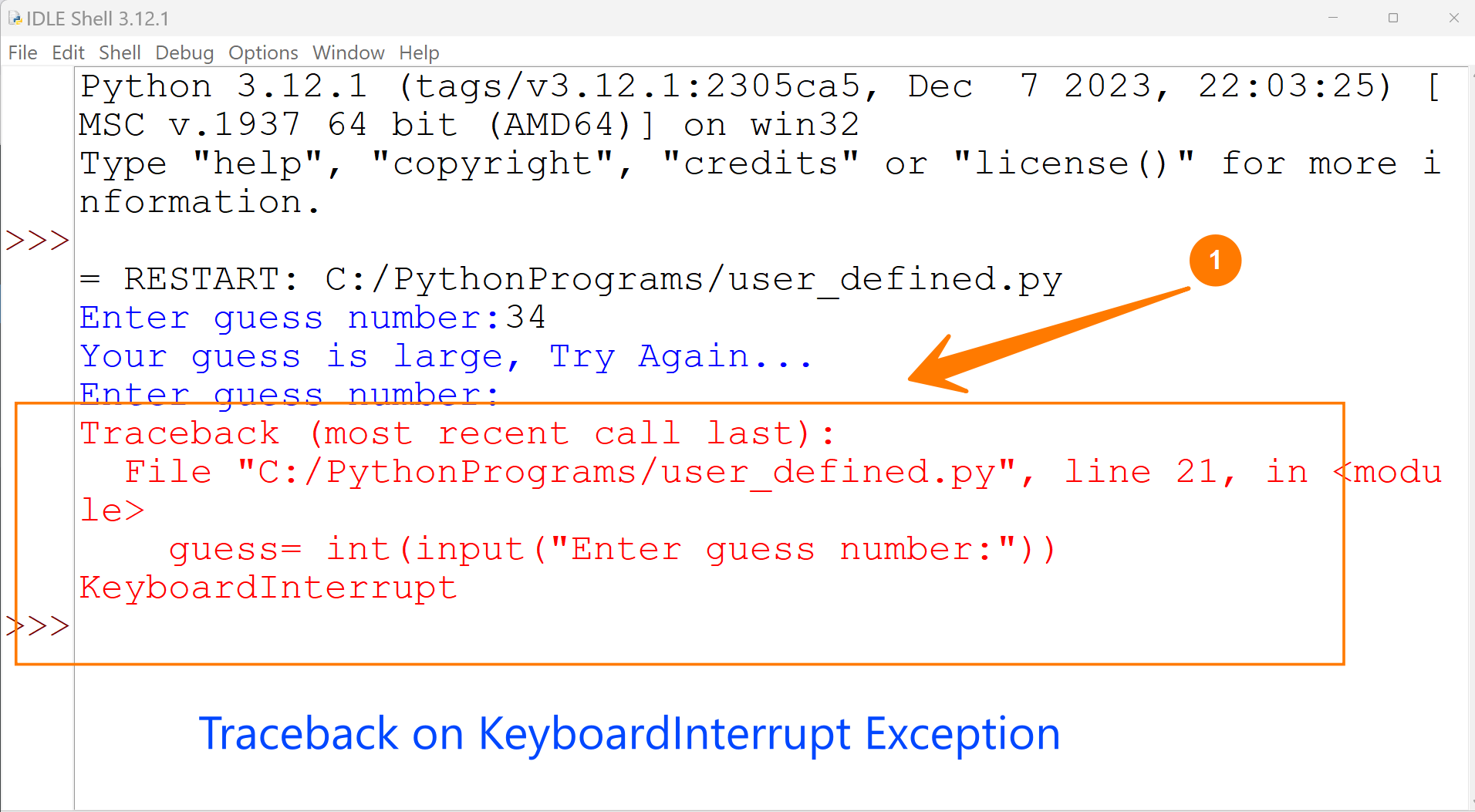Python Exceptions
Python Exceptions
In this tutorial, we will explain Python Exceptions in detail. An exception is an unexpected event that occurs during program execution. Errors that occur at runtime are also called exceptions.
Python exceptions are runtime errors that occur during the execution of a Python program. An error raises an exception, interrupting the program’s normal flow. Fortunately, appropriate exception-handling mechanisms can catch and handle them.
Example
For Example, when we try to divide a number by zero in the program, the following exception, ZeroDivisionError, is raised. If exceptions are not handled properly, the program prints a traceback of that error and details why it occurred.
A KeyboardInterrupt exception occurred while running the program. The following trace has been printed because the exception was not handled in the code.
———–
Enter guess number:34
Your guess is large, Try Again…
Enter guess number:
Traceback (most recent call last):
File “C:/PythonPrograms/user_defined.py”, line 21, in <module>
guess= int(input(“Enter guess number:”))
KeyboardInterrupt

Built-in Exceptions
User-Defined Exceptions
—
Python Tutorials
Python Tutorial on this website can be found at:
More information on Python is available at the official website:








